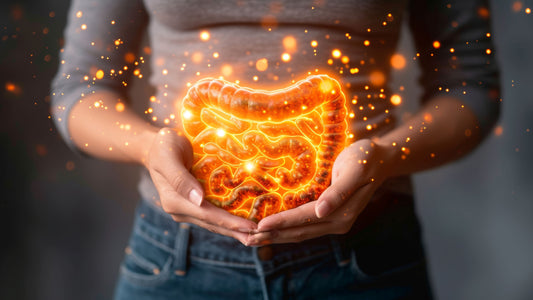A few years back, my family and I went through a very traumatic time (I’ll talk about this later in the post) which caused me to disconnect from the world. I’m better now, but that experience made me think of all of you who might be going through the same thing.
At the time, even armed with all of my clinical knowledge of the human body, I felt it was a challenge to get myself out of that isolation. I had to really make a commitment to myself to get better, and eventually, I did.
I learned a lot that I subsequently brought to my patients going through similar difficulties. Here are a few questions that I used to ask them; do any ring true for you?
- Are you stressed, tired, lonely and disconnected from your relationships with others?
- Do you feel out of touch with even yourself?
- Do you prefer to stay home rather than socialize?
- Do you actively avoid people you know, not because they annoy you but because you don’t want to interact with anyone?
- Are you missing the warmth of love and connection?
- Do you just not have the energy to connect?
When Connecting Seems To Be A Herculean Affair
It’s easy to slide into this state without noticing because it usually happens gradually. Little by little, stress chips away at you until you find one day, you can’t seem to get out of bed and you’re not sure how you got there, or how to get out.
For women going through menopause, this is especially true because not only are our bodies changing, but the stress that comes from all that change, plus the weight of the daily grind and stress can wreak havoc in our systems. Though this by no means is restricted to only those who are menopausal — anyone of any gender and age can struggle from this feeling of disconnection.
The effects of chronic stress and adrenal fatigue can literally empty our tanks and throw us way off balance. It is very possible that some of the most important hormones in your body — cortisol, adrenaline, and oxytocin — are waging war on each other and wrecking your life!
The Cortisol-Adrenaline-Oxytocin Connection
Cortisol and adrenaline are our immediate responders in times of danger and stress. Cortisol is our body’s natural anti-inflammatory hormone. Its role is to protect our body from inflammation. These hormones are secreted from the adrenal gland, located just above our kidneys.
The thing with the body is, many of its reactions are automatic. Things like breathing, blinking, our heartbeat etc. all happen automatically. When we are faced with what the body perceives as a “threat”, the body automatically triggers a stress response or a fight-or-flight response, which releases cortisol and adrenaline into our system.
This is a good thing. It helps keep us safe, especially in the past when we lived outdoors and had to worry about wild animals. We had to make quick decisions — to either stay and fight or to run away — in order to survive.
What happens to your body when stress hormones are released?
So imagine you’re faced with a dangerous situation, say a bear is in your living room. You will need all your faculties in order to survive. And this is exactly what your body supplies.
Adrenaline stimulates the autonomic nervous system, increases oxygen flow to the brain, nerve sensitivity, and heart rate, to help the body deal with the stressor.
Cortisol provides a quick energy fix, heightens mental alertness, and temporarily raises the body’s pain threshold. It regulates blood pressure and immune function, lessens inflammatory responses in the body, and triggers the release of insulin which helps bring blood sugar back to normal levels. Basically, your body does all it can to help you deal with the bear — whether you choose to run or stay and fight it.
And once the threat has passed, the body then usually returns to a normal unaroused state (slower breathing and heart rate, etc.). Cortisol levels drop, and the adrenals, heart, lungs, and brain all return to their usual functioning levels.
Too much of a good thing?
The problem arises when the body is in a constant state of stress or ON state, and these hormones flood our system, even when we are in no immediate danger. A body in constant stress leads to a state of hypervigilance and becomes a huge problem, and can actually damage and knock us “off balance”.
Cortisol and adrenaline accumulate to unhealthy levels in the body leading to a host of symptoms, some of which you might be going through now. At these excessive levels over a long period of time, cortisol ceases to be beneficial. The adrenal gland’s production of cortisol is suppressed to keep from frying out our mitochondria — the energy powerhouse of our cells.
As we continue to suffer through chronic stress now in a state of low cortisol or hypocortisolism we start to:
- Constantly fall sick with colds and flu as our immune system becomes suppressed
- Rapidly age
- Experience loneliness, depression and burnout
- Suffer from fatigue, lack of energy and exhaustion
- Endure more aches and pains
- Lack mental clarity (brain fog) and experience memory loss
- Have food cravings, especially sweets and salty foods causing weight gain (around the middle) or difficulty maintaining weight
- Suffer through depression, anxiety, nervousness, and irritability, leading to isolating behaviors (due to a lack of oxytocin)
- Experience hormonal imbalances, irregular cycles, PMS
- Experience GI upset, constipation, diarrhea
- Lose hair
- Suffer from a low libido, have sexual dysfunction, relationship “disconnects” (due to a lack of oxytocin)
- Get inflamed, including allergies, asthma, stiffens in joints and joint pain
- Sleep poorly
- Have insulin resistance
Oxytocin, The Love Hormone
Oxytocin is the powerful hormone of love, bonding, and connection. It’s the hormone we release in abundance during childbirth that overflows as we look into the eyes of our newborn. It is also released in abundance with orgasm, laughter, play, hugging, giving, and even when stroking your pets.
It’s the hormone responsible for the twinkle in your eyes and the smile on your face. Yes! The peace and love, anti-aging hormone!
The lack of oxytocin is what leads to feelings of disconnect, isolation, loneliness, and depression.
As you can see the adrenal hormones and oxytocin oppose each other. One is released to create bonds, while the other is secreted to help in stressful situations. When one goes up, the other is forced to go down.
The key is balancing the two.
The Heartbreak That Led To Discovery
This is where things get personal in this essay. Several years ago, my family and I were traumatized when my son passed away in a tragic accident. We all experienced PTSD and I became clinically depressed, stressed, sleepless, inflamed, infertile and hormonally imbalanced to say the least.
It was a really tough time for us. I needed to find a way to live again for my family and myself.
We decided to take time off to travel the world. I am immensely grateful that we were in a position to be able to take time off to heal. I came back pregnant, and ready to make a new start. My children were healthy and happy and excited about our new baby.
However, despite my enormous progress, I was still disconnected from myself and from my husband. Unfortunately, the strain of this disconnect led to the end of my marriage.
This loss allowed me to make a transformative discovery.
I now recognize that chronic stress, adrenal fatigue, and PTSD triggered the cortisol-adrenaline-oxytocin disconnect and it made me unconsciously walk away from things and people I loved.
The Good News
This discovery has since allowed me to help thousands of clients struggling with a similar disconnect. I was able to recognize the symptoms in their lives as being one of a cortisol-adrenaline-oxytocin battle.
And together, we take action to prevent it’s disconnecting consequences before it’s too late. The key is in understanding that the beauty in life emerges when there is a sweet balance between cortisol, adrenaline, and oxytocin.
The menopause complication
Unfortunately, if you are like many women who are in perimenopause or menopause, being hormonally imbalanced (both with cortisol-adrenaline-oxytocin and estrogen) can further complicate things.
Not only might you suffer from the symptoms I mentioned above, but also from many other physical and emotional symptoms that further impact your relationship. Which in turn reduces the oxytocin that we need to make us feel good.
What Can One Do?
We’re so inundated with things in our daily lives it’s hard not to live in a state of constant stress. If you’re already in a state of disconnect, it might be hard to find it in you to do the things that release oxytocin.
But I say, try. Try and do a little every day. And one day, you’ll see it will start to make a difference. Unfortunately, there is no quick fix here.
To create more oxytocin in your life:
- Hug / Cuddle
- Laugh
- Play
- Look into someone’s eyes and smile
- Orgasm
- Give gratitude and thanks
- Get and play with a pet or pets
- Stay in the present
- Control the stress you can
- Manage your thoughts around the stress you can’t control
Make a proactive effort to carve out time in each day to connect and reduce your stress. And it’s not just about releasing more oxytocin, you also need to reverse the effects of adrenal fatigue and burnout.
One of the most helpful changes I made in my life was to fix my diet.
These days I choose to eat a more keto-green diet with the right proportions of carbohydrates, protein, and healthy fats, and a wealth of alkalizing fresh vegetables and fruits. I carve out time to meditate, fast, get enough sleep, be grateful and spend time with my family. On top of that, I make sure to keep my vices to a minimal.
During my travels, I discovered natural adrenal adaptogens like Maca, Ashwagandha, Siberian ginseng, and Rhodiola Rosea. These work wonders in restoring your adrenal glands. My favorite is the Maca root from Peru.
I love it so much I created Mighty Maca® Plus — a superfoods drink with 40+ natural ingredients.
Having it daily is an important step in restoring your adrenal glands, balancing your hormones, reducing inflammation, detoxing your body and providing you with some much-needed energy.
To learn more, watch the video below.
A lifestyle change and Mighty Maca ® Plus switched up my life for the better. I hope that it can help you too. If you’re feeling disconnected from yourself and the world, anxious, or depressed, don’t settle for these feelings. There is a way to feel better and enjoy the beauty in all of your relationships.




